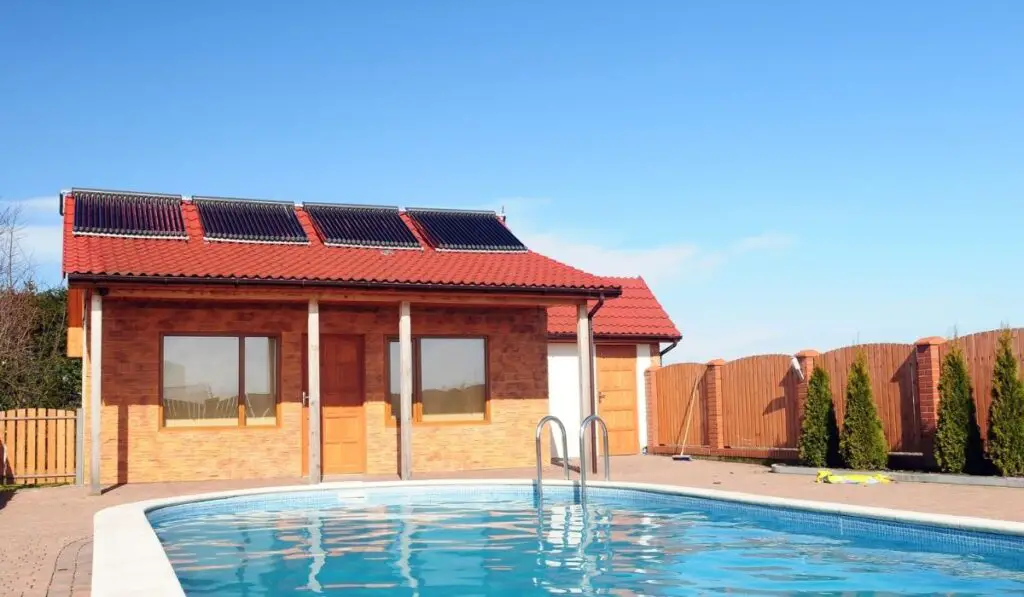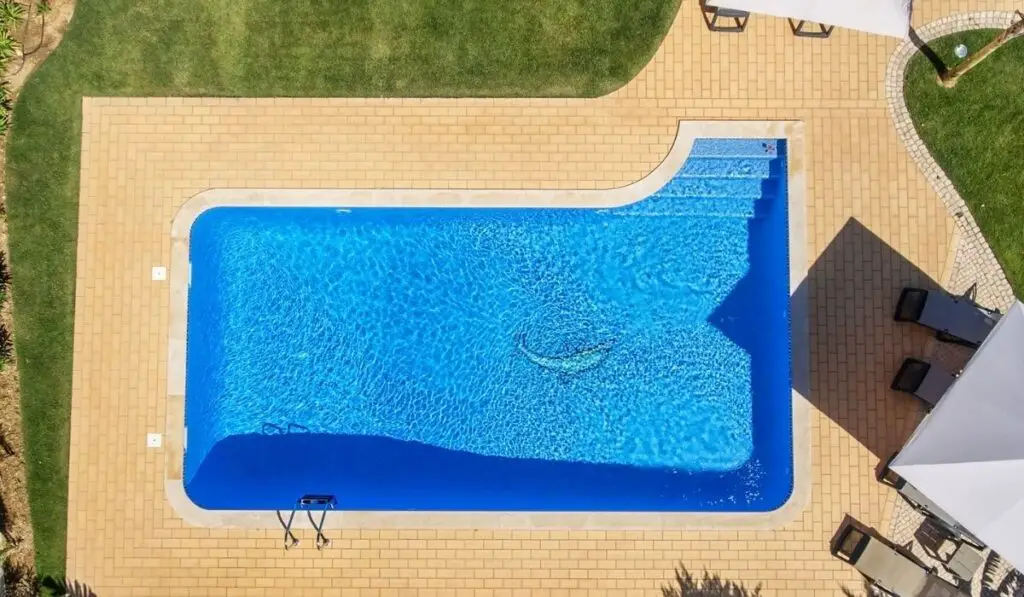Swimming in a pool when the water is too cold is an activity you’d most likely avoid engaging in whether you already own a pool or you have plans to build one. If there’s a certain level of warmth you want your pool to have, heating it is of course the best option. That way, you’d be sure to enjoy swimming in the pool even when it’s not the hottest time of the year. But, can you heat your swimming pool?
There are several options for heating swimming pools. Gas heaters and heat pumps are great choices, but are expensive to install and operate. Solar heaters can cost just as much to install, but have extremely low operating costs. However, solar options ultimately depend on the weather.
If you have a pool in your home or you’re planning to build one, you would want to heat it from time to time. You’d of course want to enjoy comfort and convenience if you’re going to be heating your pool yourself and that’s what the range of heating technology currently available on the market offers. There’s a plethora of options and devices that can be used for this purpose. Which of them is the most effective? Let’s take a look at the best available devices for heating your pool, alongside the other adoptable practices to give your pool the warmth you so desire without having to worry about incurring extra costs.
Can A Regular Pool Be Heated?

If you’re thinking about the best investments to make for your swimming pool, getting a pool heater has to make it to the list. With the heater, you can regulate the pool’s temperature to your preference and that would in turn make the water more comfortable.
You do not have to close up or abandon the pool during the winter months as the pool heater helps to extend the swimming season from three months to close to six months. This is because it provides warm water in the spring and fall. Depending on the area, you can even swim year-round.
How Can You Heat Your Swimming Pool?
If getting a pool heater is in your plans, below is some useful information you need to know about the various types of pool heaters.
Using a Gas Heater
This method is similar to heating your home. To function, a gas heater requires propane or natural gas. The gas burns in a combustion chamber as water filters through an exchanger.
Then the heat is transferred to the water, which is then pushed back out to the pool. Gas heaters have evolved over the last few years in terms of energy efficiency and the current ones aren’t left out. Some gas heaters today boast as high as 95% in efficiency ratings.
You can also fund gas heaters that produce low nitrogen-oxide emissions, which in turn makes them environment-friendly when heating. You can now connect a lot of gas heaters to your phone through a smartphone app, enabling you to operate the heater from your office, inside your home, car, or wherever.
A pool expert can suggest or help you select a heater using the following criteria:
- Preferred temperature
- Size of the pool
- The temperature of the coldest month for planned use
You may also consider options like Hayward Universal H-Series Propane Pool Heater (On Amazon).
Using a Solar Heater
This is simply the most efficient way to have your pool heated. The solar heater channels the rays of the sun using a collection panel and then push the heat out into the water through the filter and the pump.
A solar heater’s upfront cost is competitive with other heaters, but it ranks higher in energy efficiency and costs lower to maintain annually. There are two different types of solar pool collectors: glazed and unglazed.
Glazed is the perfect choice if you reside in a wintry climate as it helps protects the glass in icy temperatures. Unglazed, however, is less expensive and is also adequate for hot-weather climates.
If you want to fit a solar heater, there are certain factors you should consider. The first one is to check if there’s enough availability of sunlight. If there is, you should look for the best possible spot to place the solar collectors.
The best bet is on the roof but you have to make sure that it’s in a direction that allows it to capture the sun. The last thing to do is to check with your local building codes before you install the collectors.
Using a Heat Pump
This is another energy-efficient method you can use. The heat pump absorbs the humidity and warm air from the surrounding atmosphere and transfers it directly to the pool water. It will still work in temperatures as low as 50 degrees.
However, it will work better when the outside temperature is warmer. Heat pumps have a greater upfront cost compared to traditional heaters, but it’s ultimately more cost-effective with reduced energy bills and yearly costs. On top of that, if given proper maintenance, heat pumps will last longer than the gas pump.
Solar Pool Cover
Also known as solar blankets, solar pool covers are typically large sheets of insulating plastic that lie on top of your pool water. Not only do they capture the sun’s energy and keep the pool water warm, but they also keep the heat in by reducing water evaporation.
Your pool will lose all the heat it gains during the day at night. With the help of a solar blanket, some of the heat can be kept from dissipating and evaporation is also cut by about 95%.
You also lose the chemicals in your pool’s water if water evaporates from the pool. With the help of a solar blanket, 35 to 60% of your pool water chemicals can be prevented from disappearing into thin air.
A solar cover like Blue Wave Solar Blanket (On Amazon) may not keep your pool water as warm as a gas or electric heater would, depending on where you live. However, it helps reduce evaporation and energy bills to reheat the pool water.
Liquid Solar Pool Cover
Liquid solar pool covers are produced from a fatty alcohol material that produces a thin layer on the surface of the pool water and helps stop evaporation. It can’t be felt or seen plus it’s pretty safe to swim in.
Liquid solar covers are pretty much easier to use than solar blankets. Instead of reeling in a blanket, you’d just be adding liquid to your pool. However, solar blankets are about 25% more effective when it comes to keeping heat and water in the pool.
What is the Best Way to Heat Your Swimming Pool?

Using a pool heater and a solar cover is the fastest way to have your pool heated. It’s just like heating your coffee in the microwave and putting a lid on it.
You should have at least a solar cover regardless of how you want to have your pool heated. Not only does it conserve energy, but you’ll also save money and your pool will stay heated longer.
Is it Worth it to Heat Your Swimming Pool?
Getting a pool heater could prove to be a remarkable investment especially if the whole family intends to make use of its new pool all year. With these heaters, you get proper technology that enables comfortable swimming temperatures, even when the weather is cold.
A lot of families would love to be able to adjust the temperature to make the pool more comfortable to swim in, particularly if they are pool people.
However, if you plan to use the pool only during the summer months when the water is reasonably warm, then a pool heater is not needed.
The pool heater is also not needed when you intend to cover the swimming oasis before the school season.
